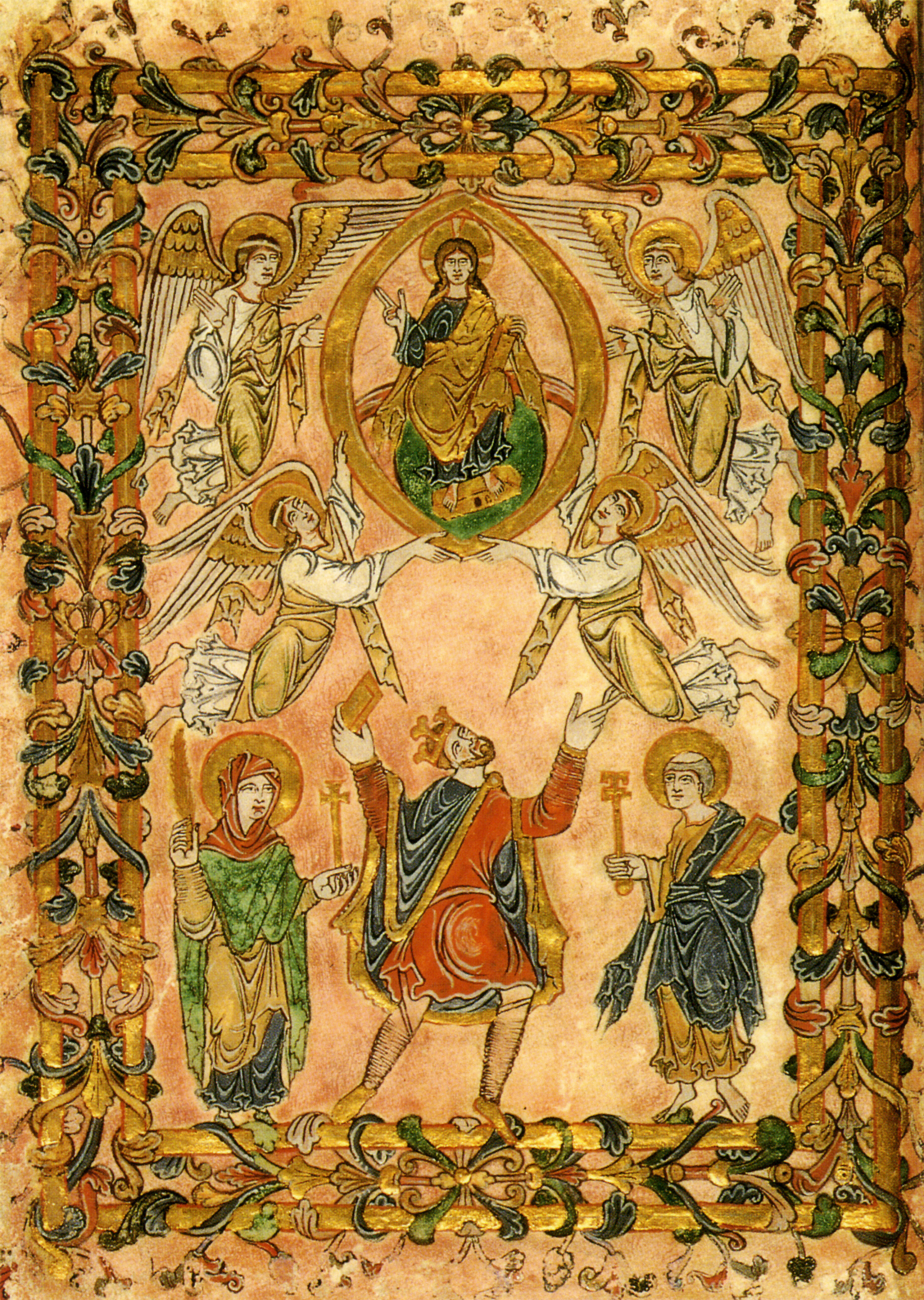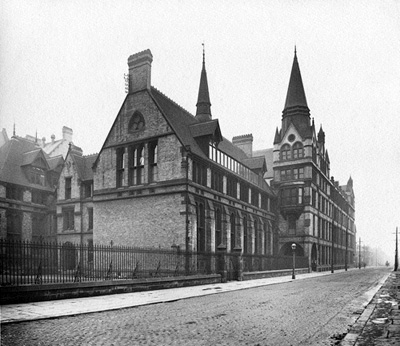|
Eric John
Eric John (1922–2000) was a reader in history at the University of Manchester and a specialist in Anglo-Saxon history. He was described by James Campbell as "one of the most distinguished and provocative of Anglo-Saxonists". D. H. Farmer described his studies of the English Benedictine Reform, mainly in pages 154-264 of ''Orbis Britanniae'', as "both stimulating and provocative; even those who cannot assent to all his conclusions recognise that he has brought a new dimension to the study of the reform". His books included: * * * * He also contributed chapters on the later Anglo-Saxon period in ''The Anglo-Saxons'' (1982), edited by James Campbell; and "The Social and Political Problems of the Early English Church" in ''Anglo-Saxon History: Basic Readings'' (2000) edited by David Pelteret. ''Edward the Elder 899-924'' (2001) was dedicated as a memorial to the life and work of Eric John. References External Resources [...More Info...] [...Related Items...] OR: [Wikipedia] [Google] [Baidu] |
University Of Manchester
The University of Manchester is a public university, public research university in Manchester, England. The main campus is south of Manchester city centre, Manchester City Centre on Wilmslow Road, Oxford Road. The university owns and operates major cultural assets such as the Manchester Museum, The Whitworth art gallery, the John Rylands Library, the Tabley House, Tabley House Collection and the Jodrell Bank Observatory—a UNESCO World Heritage Site. The University of Manchester is considered a red brick university, a product of the civic university movement of the late 19th century. The current University of Manchester was formed in 2004 following the merger of the University of Manchester Institute of Science and Technology (UMIST) and the Victoria University of Manchester. This followed a century of the two institutions working closely with one another. The University of Manchester Institute of Science and Technology was founded in 1824 as the Manchester Mechanics' Institute, ... [...More Info...] [...Related Items...] OR: [Wikipedia] [Google] [Baidu] |
Anglo-Saxon History
Anglo-Saxon England or Early Medieval England, existing from the 5th to the 11th centuries from the end of Roman Britain until the Norman conquest in 1066, consisted of various Anglo-Saxon kingdoms until 927, when it was united as the Kingdom of England by King Æthelstan (r. 927–939). It became part of the short-lived North Sea Empire of Cnut the Great, a personal union between England, Denmark and Norway in the 11th century. The Anglo-Saxons migrated to England from mainland northwestern Europe after the Roman Empire abandoned Britain at the beginning of the fifth century. Anglo-Saxon history thus begins during the period of sub-Roman Britain following the end of Roman control, and traces the establishment of Anglo-Saxon kingdoms in the 5th and 6th centuries (conventionally identified as seven main kingdoms: Northumbria, Mercia, East Anglia, Essex, Kent, Sussex, and Wessex); their Christianisation during the 7th century; the threat of Viking invasions and ... [...More Info...] [...Related Items...] OR: [Wikipedia] [Google] [Baidu] |
James Campbell (historian)
James Campbell, (26 January 1935 – 31 May 2016) was a British historian, specialising in the medieval period and the Anglo-Saxons. He was a Fellow of Worcester College, Oxford, from 1957 until his retirement in 2002, and Professor of Medieval History at the University of Oxford from 1996 to 2002. Early life and education Campbell was born on 26 January 1935 in Cheltenham, Gloucestershire, England. His birth father, John Henry Mogg was a teacher and his mother Barbara Hilda Brown was also a teacher and member of the Communist Party. After a period in foster care he was adopted by his maternal grandparents in 1938. He studied at Lowestoft Grammar School, where he found an interest in history. He took early entry to Magdalen College, Oxford, at the age of 17 and graduated with a first in 1955. Academic career In 1956, Campbell took up a junior research fellowship at Merton College, Oxford. In 1957, at the age of 22, he was elected a Fellow at Worcester College, Oxford. He h ... [...More Info...] [...Related Items...] OR: [Wikipedia] [Google] [Baidu] |
English Benedictine Reform
The English Benedictine Reform or Monastic Reform of the English church in the late tenth century was a religious and intellectual movement in the later Anglo-Saxon period. In the mid-tenth century almost all monasteries were staffed by secular clergy, who were often married. The reformers sought to replace them with celibate contemplative monks following the Rule of Saint Benedict. The movement was inspired by Continental monastic reforms, and the leading figures were Dunstan, Archbishop of Canterbury, Æthelwold, Bishop of Winchester, and Oswald, Archbishop of York. In seventh- and eighth-century England, most monasteries were Benedictine, but in the ninth century learning and monasticism declined severely. Alfred the Great (871–899) deplored the decline and started to reverse it. The court of Æthelstan (924–939), the first king of the whole of England, was cosmopolitan, and future reformers such as Dunstan and Æthelwold learned from Continental exponents of Benedicti ... [...More Info...] [...Related Items...] OR: [Wikipedia] [Google] [Baidu] |
University Of Manchester Library
The University of Manchester Library is the library system and information service of the University of Manchester. The main library is on the Oxford Road campus of the university, with its entrance on Burlington Street. There are also ten other library sites, eight spread out across the university's campus, plus The John Rylands Library on Deansgate and the Ahmed Iqbal Ullah Race Relations Resource Centre situated inside Manchester Central Library. In 1851 the library of Owens College was established at Cobden House on Quay Street, Manchester. This later became the Manchester University Library (of the Victoria University of Manchester) in 1904. In July 1972 this library merged with the John Rylands Library to become the John Rylands University Library of Manchester (JRULM). On 1 October 2004 the library of the Victoria University of Manchester merged with the Joule Library of UMIST forming the John Rylands University Library (JRUL). The Joule Library was the successor of t ... [...More Info...] [...Related Items...] OR: [Wikipedia] [Google] [Baidu] |
Anglo-Saxon Studies Scholars
The Anglo-Saxons were a cultural group who inhabited England in the Early Middle Ages. They traced their origins to settlers who came to Britain from mainland Europe in the 5th century. However, the ethnogenesis of the Anglo-Saxons happened within Britain, and the identity was not merely imported. Anglo-Saxon identity arose from interaction between incoming groups from several Germanic tribes, both amongst themselves, and with indigenous Britons. Many of the natives, over time, adopted Anglo-Saxon culture and language and were assimilated. The Anglo-Saxons established the concept, and the Kingdom, of England, and though the modern English language owes somewhat less than 26% of its words to their language, this includes the vast majority of words used in everyday speech. Historically, the Anglo-Saxon period denotes the period in Britain between about 450 and 1066, after their initial settlement and up until the Norman Conquest. Higham, Nicholas J., and Martin J. Ryan. ... [...More Info...] [...Related Items...] OR: [Wikipedia] [Google] [Baidu] |
1922 Births
Nineteen or 19 may refer to: * 19 (number), the natural number following 18 and preceding 20 * one of the years 19 BC, AD 19, 1919, 2019 Films * ''19'' (film), a 2001 Japanese film * ''Nineteen'' (film), a 1987 science fiction film Music * 19 (band), a Japanese pop music duo Albums * ''19'' (Adele album), 2008 * ''19'', a 2003 album by Alsou * ''19'', a 2006 album by Evan Yo * ''19'', a 2018 album by MHD * ''19'', one half of the double album '' 63/19'' by Kool A.D. * '' Number Nineteen'', a 1971 album by American jazz pianist Mal Waldron * ''XIX'' (EP), a 2019 EP by 1the9 Songs * "19" (song), a 1985 song by British musician Paul Hardcastle. * "Nineteen", a song by Bad4Good from the 1992 album ''Refugee A refugee, conventionally speaking, is a displaced person who has crossed national borders and who cannot or is unwilling to return home due to well-founded fear of persecution. [...More Info...] [...Related Items...] OR: [Wikipedia] [Google] [Baidu] |




